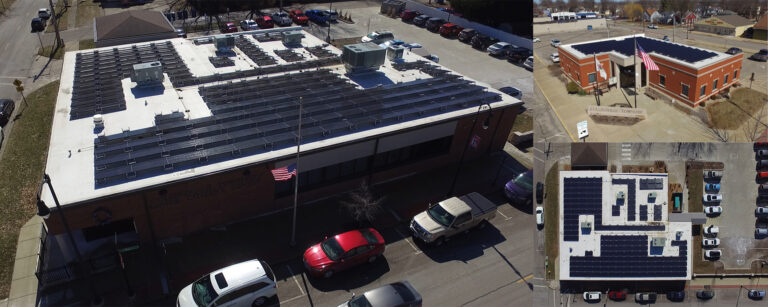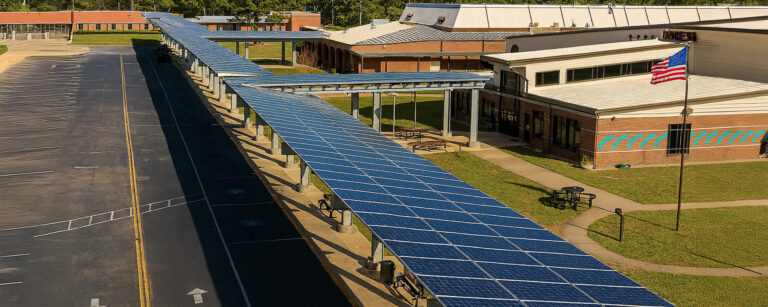Who Foots the Bill?
There’s been a lot of noise lately about a company looking to turn a property in the St. Louis region into a server farm focused on AI. To most people, this might sound like economic development or tech progress. But what’s not being said is what it will actually cost the people who live and work here. And that’s where this conversation needs to start.
Big Energy, Bigger Bills
Server facilities aren’t like your typical warehouse or office. They run 24/7, generate a lot of heat, and use an incredible amount of electricity. Nationally, data centers already use about 4 to 5 percent of all electricity in the U.S. That number is expected to double or triple within just a few years, mostly because of artificial intelligence.
So what does that mean for STL? More strain on the grid, more power plants to supply that energy, and the potential for utilities to pass those costs on to ratepayers. We’re already seeing signs of this. Ameren has floated a plan to offer discounted rates to these large server operations. Regulatory staff in Missouri estimate this could push electric bills up by more than $20 million a year for everyone else.
Public Infrastructure, Private Profits
When a new facility like this comes in, it doesn’t just flip a switch and plug in. We’re talking new substations, power lines, maybe even new generation. And that infrastructure gets paid for somehow. In most cases, taxpayers or utility customers end up footing the bill. So the question becomes: why are we being asked to subsidize a private company’s massive energy use?
Worse yet, if that facility ends up overbuilt or underused, the public still has to cover the sunk costs of that infrastructure. It’s the same story we’ve seen in other cities that chased big data dreams.
Tax Breaks With Little Return
In Missouri, data centers are eligible for major tax incentives. We’re talking full sales and use tax exemptions on their equipment. The argument is that these projects will create jobs and spark tech investment in the area.
But the reality is, server farms are not job engines. Once construction wraps up, they might employ a few dozen people at most. They’re designed to be automated. So while the company gets millions in breaks, the city sees little return in terms of employment or broad economic impact.
What It Means for STL
St. Louis has always been a city with a strong utility backbone and relatively cheap electricity. That’s part of why it’s attractive for these types of developments. But there are ripple effects. Lower-income neighborhoods already struggle with energy burden. Small businesses are stretched thin trying to keep up with inflation. If we let huge energy consumers enter the region without putting up guardrails, the people who can least afford it will pay the price.
Right now, there are already data centers operating in STL. Companies like TierPoint and H5 have existing facilities. But the scale of AI-focused server infrastructure is different. These aren’t just data backups. They are power-hungry AI engines that keep running even when demand fluctuates.
Don’t Let Hype Replace Policy
There’s no doubt AI is growing. But building public policy around speculative growth is a dangerous game. What happens if the trend slows down? What happens if companies overbuild and underdeliver? That risk ends up in our lap.
If St. Louis wants to be smart about this, we need to demand transparency. Energy impact studies. Real numbers. Firm agreements that don’t let corporations off the hook when things go sideways. And if incentives are on the table, they need to be performance-based and come with clawbacks if promises aren’t met.
What Comes Next
This issue isn’t just about one company or one deal. It’s about setting a precedent. St. Louis has an opportunity to be forward-thinking and responsible. We can welcome tech, but not at the expense of our residents and small businesses.
If you’re reading this and you live or work in STL, stay informed. Ask your council member how they’re planning to handle large-scale developments like this. Get involved in public comment periods. Demand that energy usage, tax impacts, and zoning considerations aren’t hidden behind closed doors.
Progress shouldn’t come at the cost of the people who built this city. And we shouldn’t be asked to pay for someone else’s profit engine.



